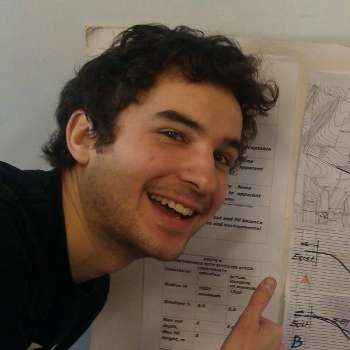It’s a fairly poor show that I hadn’t been to a Prom in years. Since it is all online and on the radio, there is the tendency to stay home and listen – but this concert was a reminder of quite how worthwhile it is to attend concerts in person. The power of live musical performance was exemplified by this varied programme, performed in a most varied and adaptive way. Prom 6 began with a BBC-commissioned world première: Fung Lam’s Endless Forms.
The opening few phrases rewarded my new-found proximity to the Proms with the suspense of thousands of held breaths – the Royal Albert Hall was sold out and Lam’s ponderous melodies quickly built a keen sense of anticipation. Its theme of evolution was exposed in a most atmospheric fashion; a low gloom was built up in the cellos and violins, which was eventually shaken off with a distinctive syncopated motor and replaced with cautiously optimistic orchestral swells. Such a grand narrative could easily have been hammy or saccharine, but the BBC Symphony Orchestra’s restraint ensured an artful rendering of the piece.
That same cool control was present in the strings’ treatment of Rachmaninov’s Piano Concerto no. 2, but such an approach was perhaps a little less appropriate here, given the warm, romantic feelings most audiences have for the piece. Where Kirill Gerstein drew as much sweet drama from the piano as he could, violins ably retorted but I feel underplayed the more romantic of the well-known themes. That said, this was still a fulfilling performance. Wherever possible Gerstein pulled at rallentandos and added to pauses between notes. Such details were much more prominent where orchestra support fell away, and in those moments Gerstein truly mastered the concerto. Much as he did an encore of an arranged ‘I Got Rhythm’, after the audience practically insisted he sit back down and play some more.
While I’m not normally one for calling ‘Encore!’ and the like, by the end of the succeeding piece I had yelled my first ever ‘Bravo!’. With Sergey Prokofiev’s Symphony no. 6, the mannered restraint of the first half quickly evaporated. The orchestra fragmented from a solid block of sound into a variety of balkanised sections, each vying for attention. Such a shift in approach is presumably not an easy trick to pull off, but under the stewardship of conductor Sakari Oramo – of which much more is to come in future years – the whole orchestra played out with confidence.
Prokofiev’s orchestration in this symphony contains many surprising combinations, at times coupling trombone with flute, and horns with celesta. I was struck by the unusual timbres and by how well the BBC Symphony Orchestra made them work. There were so many clever effects and harmonic turns I couldn’t praise them all here, but I have to say that the heavy brass, and particularly the tuba player, rose above the rest of the orchestra and filled the Albert Hall with a perfectly pitched tone. A full 40 minutes of powerful musical statements from the brass made the immense drama of the ending seem carefully planned and to scale. Such a central role for the tuba is rare, and as it was performed with such power and awareness – bravo.
Following this most enjoyable concert I expect that Endless Forms will be performed many times in the coming years. I recommend that concertgoers seek out performances of Lam’s work and also Prokofiev’s Sixth, partly to see how different orchestras cope with their demands, but mainly on the strength of the fantastic musical effects they create.


